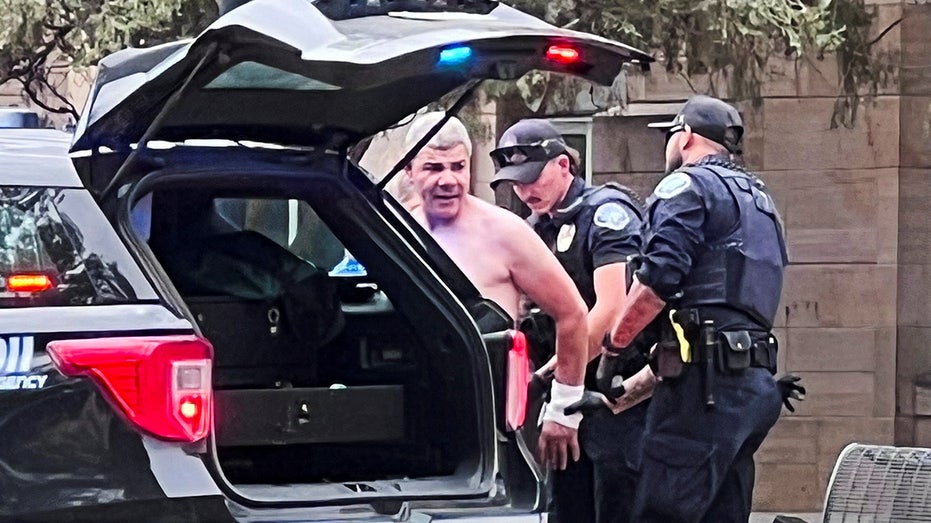Rise in Antisemitic Extremism Sparks Surge of Terror Plots in the United States Since 2020
Rise in antisemitic incidents across the U.S continues, highlighted by the Colorado attack on Mohamed Sabry Soliman facing hate crime charges.

The recent terror attack that unfolded in Boulder, Colorado, on Sunday, has intensified concerns over a dramatic upsurge in antisemitic violence and rhetoric across the United States. The incident occurred only two weeks after the tragic killings of two Israeli Embassy employees in Washington, D.C., further underscoring the alarming trend of targeted attacks against Jewish individuals and communities. Authorities say these attacks reflect a disturbing pattern that has evolved since 2020 and dramatically accelerated in the aftermath of October 7, 2023, prompting widespread condemnation and renewed calls for vigilance.
On Sunday, Mohamed Sabry Soliman, 45, allegedly carried out a deliberate assault against a pro-Israel gathering in Boulder. According to law enforcement, Soliman threw Molotov cocktails into a crowd assembled on Pearl Street as participants advocated for the release of Israeli hostages held by Hamas. As the incendiary devices exploded, eight people—ranging in age from 52 to 88—suffered burn injuries, with one victim remaining in critical condition. Authorities later discovered bomb-making materials and documents referencing Israel, Palestine, and USAID in Soliman’s vehicle, reinforcing suspicions of a premeditated, ideologically driven attack.
During post-arrest interviews, Soliman reportedly admitted to planning the attack for over a year, stating his intention was to "kill all Zionist people" and expressing deep-seated hatred linked to the ongoing conflict in the Middle East. Federal officials have confirmed that Soliman had been residing illegally in the U.S. after his work visa expired, and he now faces a slate of federal and state charges, including hate crimes and attempted murder. A federal complaint details how Soliman meticulously researched the construction of Molotov cocktails and intentionally targeted the pro-Israel group after learning of their planned event online.
This Boulder attack is part of a disturbing wave of antisemitic violence sweeping the country. Data from the Anti-Defamation League (ADL) reveal that, while Jewish Americans represent only about 2% of the U.S. population, they were the victims of a disproportionate number of hate crimes. In 2023 alone, anti-Jewish hate crimes accounted for 15% of all reported hate incidents and a staggering 68% of religion-based hate crimes. Moreover, the ADL’s Center on Extremism has tracked a significant spike in terror plots targeting Jewish communities; of 16 such attacks since January 2020, nine took place in just the past 12 months.
Other high-profile incidents include the murder of two Israeli Embassy staffers in Washington, D.C., by Elias Rodriguez, who shouted "Free, free Palestine" as he was taken into custody; an arson attack on Pennsylvania Governor Josh Shapiro’s residence, allegedly motivated by antisemitic and anti-Israel sentiments; and multiple foiled plots involving bombings and shootings of Jewish targets from New York to Las Vegas. Some suspects, like those in Chicago and Florida, are accused of plotting mass casualty events at synagogues and pro-Israel organizations, often inspired by extreme ideologies or connections to foreign militant groups.
Law enforcement agencies at both the federal and local levels have mobilized substantial resources to combat this rising threat, resulting in arrests and prosecutions of suspects of varied backgrounds—including natural-born citizens, immigrants, and even minors. The methods and motivations differ, with some perpetrators linked to white supremacist organizations, others to international terror networks, and still others acting based on radical ideologies cultivated online.
The string of violent acts has prompted an outpouring of condemnation from political leaders and Jewish advocacy groups nationwide, many describing the incidents as not merely isolated acts but symptoms of a broader societal crisis. "The explosion of antisemitism indicated it was bubbling beneath the surface," said Ruthie Blum, senior contributing editor at a Jewish news publication, warning that such events are "a sign of a decaying society."
As communities grapple with fear and trauma, authorities continue to investigate and bolster security, particularly around religious institutions and public events. Meanwhile, advocates urge increased education, dialogue, and legal action to counteract the normalization of antisemitic rhetoric and ensure that the United States remains a safe haven for all faiths and backgrounds.
The Boulder suspect, Mohamed Sabry Soliman, remains detained on a $10 million bond as the community—and the nation—reckon with the implications of these violent trends and the urgent need to address hate in all its forms.




